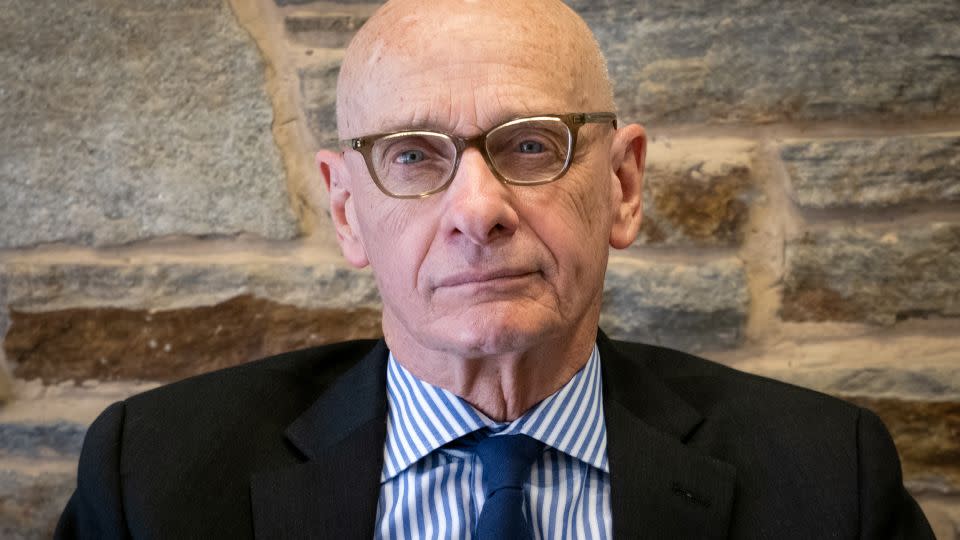Opinion: Why newsroom layoffs are so dangerous
Editor’s Note: David Zurawik is a professor of practice in media studies at Goucher College. For three decades, he was a media critic at the Baltimore Sun. The opinions expressed in this commentary are his own. View more opinion on CNN.
The drumbeat of layoffs, buyouts and downsizing in newsrooms has been all too steady and strong for the last two decades. But it seems to have grown louder and faster in recent days with news of layoffs at Business Insider, the Los Angeles Times, TIME Magazine and elsewhere.

Having lived through too many layoffs at the beleaguered Baltimore Sun during my 32 years there, I know about the personal cost to good journalists of the bloody process some HR professionals euphemistically call “right sizing.”
But there’s also a larger societal cost that comes with shrinking newsrooms at this moment in an election year when political disinformation is clearly on the rise. A democracy cannot function without accurate, vetted, factual information that citizens can trust in making decisions like who to vote for, one of the most important civic decisions in a democracy. But we are drowning in a sea of disinformation, and there are fewer and fewer lifeguards to rescue us.
The relationship came into sharp focus for me earlier this week with the news that New Hampshire residents received a robocall using what sounded like President Joe Biden’s voice, urging them not to vote in the primary.
Major news organizations like CNN reported that artificial intelligence (AI) likely generated the fake voice, and almost everyone in mainstream media saw it as only the tip of the iceberg with amped-up disinformation headed our way as the battle for the White House becomes fully engaged.
Tim Franklin, senior associate dean and director of the Local News Initiative at Northwestern University’s Medill School of Journalism, said in an email to me that this rising tide of technology-generated disinformation in society and declining number of journalists in newsrooms is a “perfect storm.”
“Last year was a brutal year for job losses in the news industry, totaling about 2,700. That was the highest level since the first year of the pandemic. The job cuts at the L.A. Times and elsewhere in recent weeks are an ominous sign that trend is continuing, if not accelerating,” he told me in an email exchange. “And this is happening in an election year when people need more reliable news and information to make informed decisions. That means the economic travails of local news are colliding with the societal need for accurate and trusted news and information in an election year. It’s a perfect storm.”
Politicians have also noted the danger of the new tech-driven disinformation in this election year. Several senators recently introduced a bipartisan bill aimed at prohibiting deceptive AI-generated audio, images or video in political ads. But good luck getting Congress to pass anything these days.
Congress itself is, of course, a crucial environment where we need more journalists, not fewer, attuned to these issues — especially when you consider that some conservative members, notably Rep. Jim Jordan (R-Ohio), are targeting academic researchers who try to chart the ways in which disinformation is created and disseminated. The lawmakers allege anti-conservative bias and label their efforts as censorship.
On Monday, 10 members of the California congressional delegation wrote to Dr. Patrick Soon-Shiong, the billionaire owner of the Los Angeles Times, expressing their concerns about the effects layoffs would have on “on all Angelenos, the availability of essential news and the strength of our democracy at large.”
According to a Los Angeles Times report, Soon-Shiong responded in part to the lawmakers by pointing to legislation in Australia and Canada that forces tech giants like Google and Facebook to pay newspapers when they use their content. He questioned the politicians on their willingness to do that here.
The deleterious effects of layoffs like the one at the Times go beyond the sheer reduction of numbers, as stark as those figures are. Several members of senior management are now gone, and with them the months of planning that go into covering an election like the one we are now in. And that’s just the leadership part of it. There’s also the reduced number of reporters and editors still employed in covering the election, and the morale issues they face in the wake of what took place to many of their colleagues. Soon-Shiong said the cuts were painful but necessary, as the paper loses tens of millions of dollars each year.
Shrinking newsrooms are part of a larger abrogation by media owners of the civic responsibility that was once a given in owning a journalistic platform. It goes hand in hand with companies such as Alden Global Capital ending the tradition of newspaper editorial pages endorsing candidates, while Gannett has urged its editors to cut back on editorials.
Tech billionaires now control much of our media, and many of them are geared toward profit, not public service. Serving democracy does not seem to be a top priority — no matter how threatened democracy might be.
The moment we are in is a perfect storm, all right. And it’s headed for an already battered democracy that is facing challenges on multiple fronts, ranging from a candidate who continues to sow distrust in the democratic process itself by calling the 2020 election a fraud, to an electorate as polarized and angry as any since the Civil War.
For more CNN news and newsletters create an account at CNN.com


